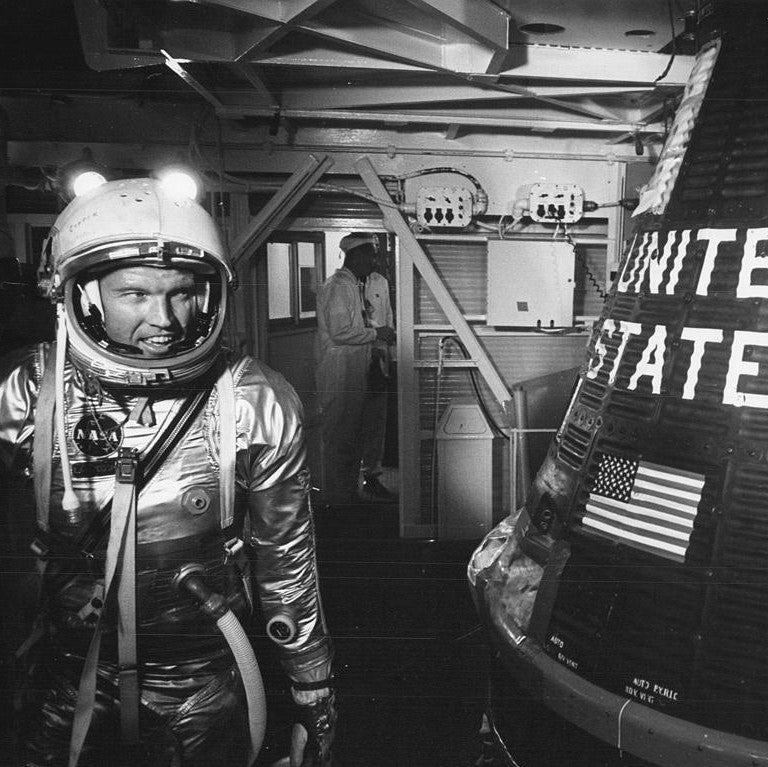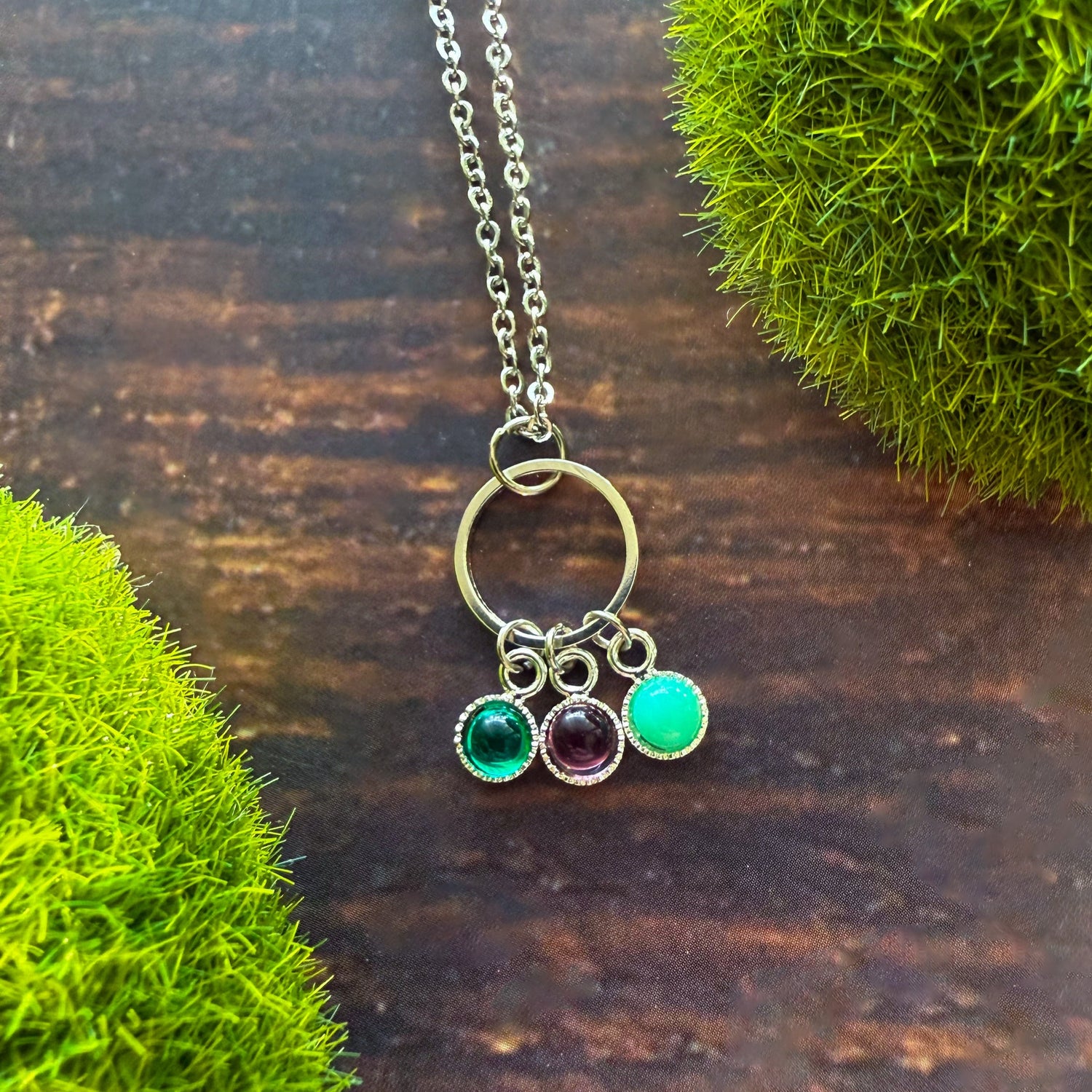
Final Mercury Program Flight
Share

Wally Schirra, Alan Shepard, Deke Slayton, Gus Grissom, John Glenn, Gordon Cooper and Scott Carpenter. Image Credits: NASA
NASA's Project Mercury, the first man-in-space program for the United States, kicked off during the Space Race in 1958 and wrapped up in 1963 after conducting twenty uncrewed developmental flights and six flights piloted by astronauts.
There were seven astronauts, referred to as the Mercury Seven, chosen for the program; and it was Leroy Gordon "Gordo" Cooper Jr. who conducted the final flight in the spacecraft he dubbed Faith 7 on this day in '63.
Fun Fact: A few of the uncrewed Mercury flights used animals, including two chimpanzees named Ham and Enos.

Ham the chimpanzee in his special seat for spaceflight
During Cooper's celestial jaunt, he spent 34 hours among the stars, making him the first American to a) spend a whole day in space and b) sleep in space; and also the last American launched on an entirely solo orbital mission.
Cooper experienced severe equipment failures during his return to Earth, so his skills as a United States Air Force pilot came in handy when he had to manually guide Faith 7 to its splashdown in the Pacific Ocean. Amazingly, he landed just 4 miles/6 kilometers ahead of the recovery ship.

Fun Fact: In 1965, Cooper set a new space endurance record (along with Pilot Pete Conrad) by traveling 3,312,993 miles/5,331,745 kilometers in 190 hours and 56 minutes, just short of eight days, which demonstrated that astronauts were able to remain in space for the time it takes to make a round trip to the Moon.
The Mercury Program was essential to early space exploration, and the Mercury Seven were certainly trailblazers in the field of astronomy. Although all the astronauts are now deceased, Cooper passed in 2004, they will live on in history as fearless pioneers who danced with the stars.
xo
B
B


